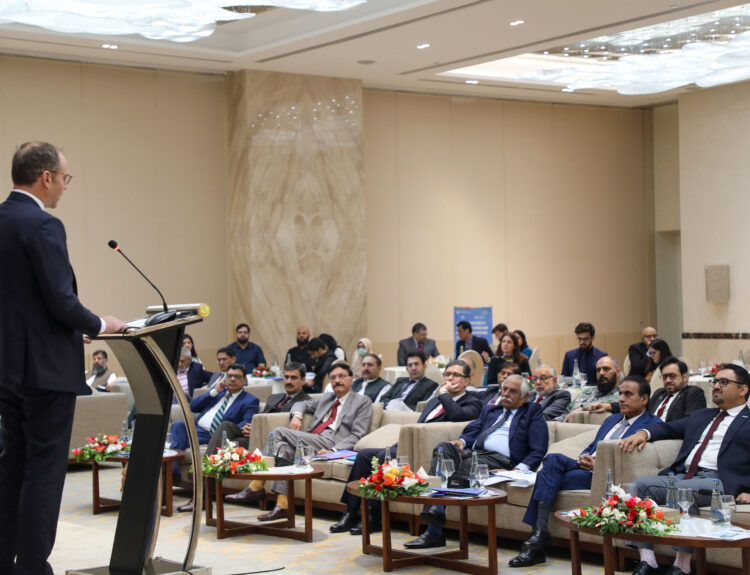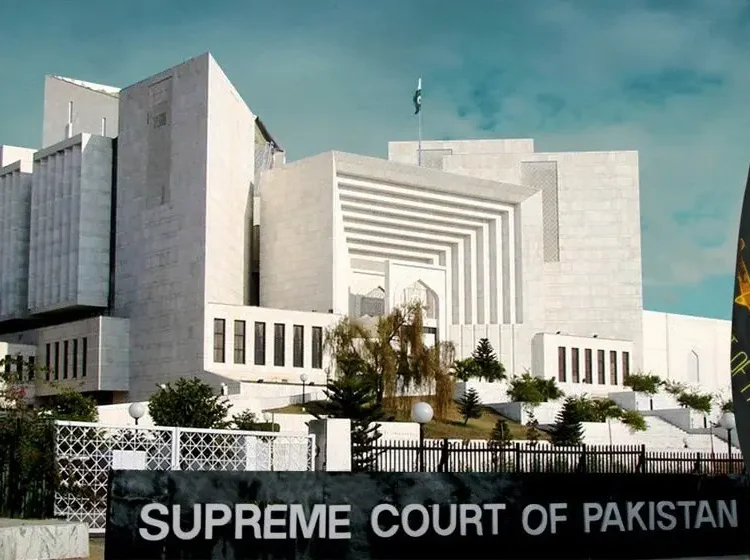After the promulgation of the 18th-amendment in the Constitution of The Islamic Republic of Pakistan the autonomy of the provinces must have been protected but regretfully, it was weakened.
The provincial autonomy is more in danger than ever before as the federal set up on one hand is constantly encroaching upon the domain of the provinces and the superior judiciary on the other hand is interpreting the Federal Legislative List of the Constitution broadly and expansively. The federal government has recently legislated where immovable property, which is exclusive jurisdiction of the provinces by virtue of entry No. 50 of the fourth schedule part I of the Constitution, has been taxed.
The federal government has introduced section 7E which imposes one percent tax of the total value of the property, in the Income Tax Ordinance, 2001 through Section 5(5) of Finance Act, 2022.
The title of the section, Deemed Rental Income, is misleading which portrays the tax as an income tax but in essence it is anything. It hardly needs mention that levying tax on immovable property is the prerogative of the provinces and within provinces that too of local government by virtue of Article 140A of the Constitution This will be proved to be a devastating blow for the provincial autonomy in general and the local government system of the country in particular.
Federalism is based on the decentralization of powers among the different tiers of the state. State in our Constitution has been defined in Article 7 which means the “…Federal Government, Parliament, a provincial government, a provincial assembly and such other authorities in Pakistan as are by law empowered to impose any tax or cess.” This definition does not make subordinate one tier of state to another; rather this defines the meaning of state in simple words. Every tier of state must respect the domain of another and shall by all means restrain to interfere with, let alone to encroach upon another.
The 18th-amendment has protected the provincial autonomy and tried to give meaning to federalism in its true sense but our courts are still carrying the same legacy of interpretation of federal legislative list as we had prior to the enactment of the 18th-amendment. Elahi Cotton Mills Ltd. versus Federation of Pakistan (PLD 1997 SC 582) can be seen in every second judgment where federal legislative list or entries thereof are in question. By this judgment the Honorable Supreme Court adopted anapproach of broad and wide construction of the then federal and concurrent legislative lists. This was not, even then, the right approach but it can somehow be justified on the ground of being prior to the promulgation of the 18th-amendment. But a similar expansive and broad approach to the broad interpretation of federal legislative list cannot be justified, let alone adopted in the post 18th-amendement era. Surprisingly and unfortunately, Supreme Court in a recent judgment i.e. Government of Sindh through Secretary Health Department and other Versus Dr. Nadeem Rizvi and others (2020 SCMR 1)by majority of 4 to 1 held that
“…the most liberal construction should be put upon the words; While interpreting an Entry in a Legislative List it should be given widest possible meaning and should not be read in a narrow or restricted sense…”
Moreover, in the said judgment the Honorable Court has relied on both, post and prior 18th-amendement judgments including the Elahi Cotton case suprawhich are exponents of broad and expansive construction of legislative list in the Constitution. Honorable Justice (R) Maqbool Baqir in dissenting note advocating for federalism, opines in the following words
“…The scope of an entry in the FLL should not be expanded or enlarged in a manner that infringes provincial autonomy…”

Our courts rely heavily on Indian jurisprudence when interpreting federal legislative list but it is to be noted that the Indian legislative scheme is totally different and alien to our scheme of legislation. Article 246 of the Indian Constitution provides for three legislative lists i.e. federal, concurrent and state list. On the other hand, Article 142 of our Constitution provides for only one list i.e. federal legislative list in the fourth schedule. In India, federal government and states have their specific legislative lists which specify their domains. While Article 248 (1) of the Indian Constitution reserves residuary powers of legislation for the parliament not for the states, that Article 142 (c) of our Constitution provides for 180 degree contrary to the Indian scheme.
When both schemes are juxtaposed, the Indian scheme reserves more power for the center while leaving a little and specified room for states. On the contrary, Pakistani scheme of legislation reserves residual powers for provinces and leaves little for the central government. Our system of federalism is based on complete decentralization and more powers are reserved for the provinces as contrary to the Indian scheme. Thus, inference from and reliance on Indian jurisprudence in this regard is not the right approach to adopt by the courts.
We have rare judgments in our jurisdiction which advocates for federalism in its true sense. One of them is that of Honorable Syed Mansoor Ali Shah (PLD 2017 Lahore 489) which elaborates our constitutional scheme of federalism as
“…The biological architecture of our constitution rests on co-operative federalism, which is a concept of federalism in which national, state and increasingly local governments interact cooperatively and collectively to solve common problems, rather than making policies separately…”
But unfortunately, we are still living in a more centralized federation which sounds more unilateralism rather than federalism. Federalism in our country cannot be seen implemented unless our courts adopt approach of narrow construction while interpreting legislative list in the Constitution. “Post 18th constitutional amendment, provincial autonomy and cooperative federalism stands revitalized and must be protected and encouraged.” It is high time to decentralize the ruling system of the country.




